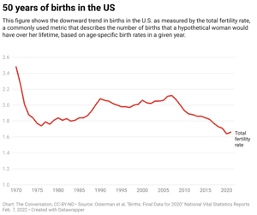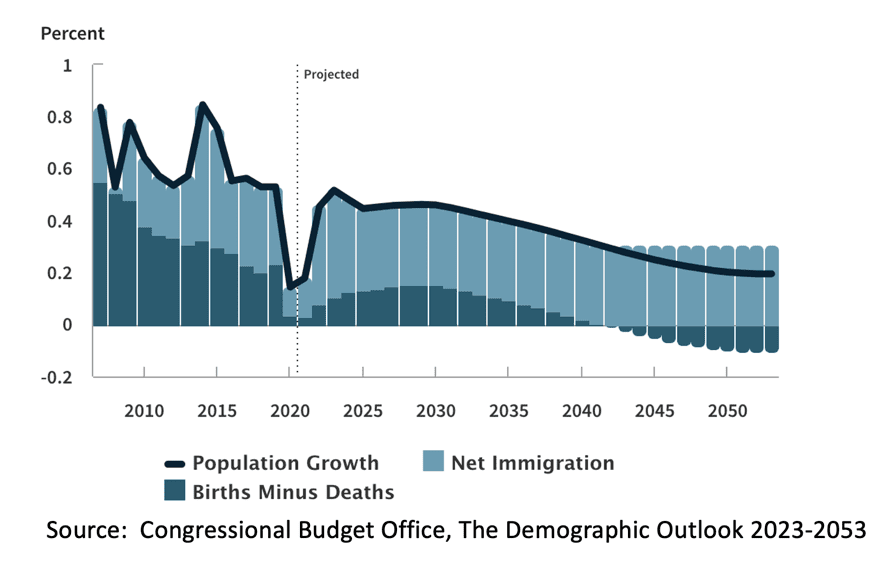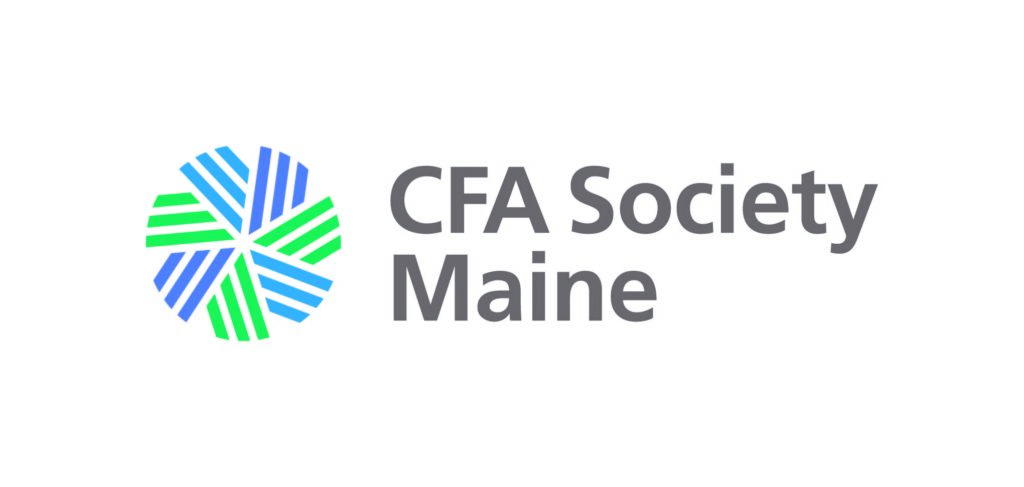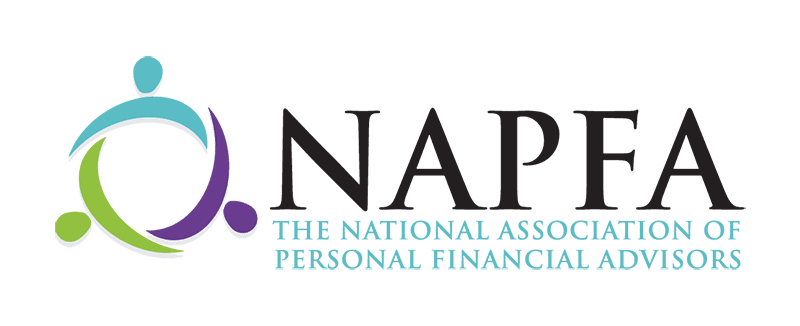Problems with our population growth (and what we’re doing about it!)
Population growth in the US has been slowing. Exactly how much isn’t entirely clear, because we aren’t as sure of how many people live in the US as we think. Generally, the census gives us a best-guess snapshot each decade. Between official census counts, we try to measure interim changes from two primary sources: ‘Vital Statistics’ released by the CDC give us insight into births and deaths, while State Department information on immigration aims to estimate how many people are emigrating into and out of the country.
So, working from a relatively solid count of the number of people in the US, we adjust that number into the future. The equation is simple:
Starting Population
+ Births
– Deaths
+ Inbound immigration
– Outbound immigration
= Ending Population

Currently, we are seeing the effects of an economy that is growing at a pace below its potential because the population is growing quite slowly. The growth rate of the US population peaked in 1957 and has been under a steady decline since.
The COVID 19 pandemic exacerbated this by simultaneously reducing birth rates and, tragically, increasing death rates in the country. At first, it seemed that disruptions in statistical measures were feeding into this drop, but years away from the initial shutdowns, we find that, in fact, this was a real phenomenon. Births in the 12-month period ending May of 2021 lagged the pre-pandemic period in the prior year by over 143,000. Deaths in the 12-month period ending March 2021 were roughly 600,000 higher than the extrapolated pre-pandemic trend. Immigration (both legal and illegal) into the US also slowed substantially during the pandemic.
Happily, the pandemic dip seems to have ended and, in fact, a bit of a post-pandemic baby boom, coupled with a decline in deaths, seem to have brought population growth back up to trend – albeit a declining trend. Certainly, this is good news on its face. Additionally, immigration has increased with more attractive economic opportunities drawing immigrants, higher numbers of asylum seekers and a general release of pent-up demand from the pandemic.
This short-term resurgence in population growth is helpful, economically. Housing demand increases (although maybe not enough to counter the effects of higher home prices and financing rates slowing down home building). General consumer spending increases as well, and this may be a part of the recipe for offsetting monetary tightening by the fed. Although probably short-lived, this small burst in population growth might just be the thing that gets the economy through the unprecedented level of Fed tightening.

Looking further out, however, much of our potential for economic growth as a country is throttled by the fact that, due to the aging of the baby boomers, our population of residents age 16-64 years of age (those considered ‘working age’) will only grow by approximately 0.17% in the years going forward. This is not a trend that can be quickly fixed, outside of a significant increase in immigration, the politics around which make that an unlikely solution. With demographics working against us, we would need to rely on significant increases in worker productivity (output per worker), but the statistics suggest that productivity is declining since the pandemic, not increasing. Domestic growth will likely be held back in the upcoming decade because of this.
While we can’t change demographics, we can, as investors, assess opportunities to diversify geographically to include areas without such headwinds – or even to take more advantage of domestic industries that cater to the faster-increasing ‘over 65’ age group.
We at PFA are also doing our level best to buck the trend of lower population growth. Within the past 8 years, Julie and Ryan, Hannah and Zac and Tyler and Nikki, and Libby and Alex have combined to increase our population with 7 additions to the extended PFA family. And we’re still doing our part! Sam and Amy, Craig and Nikki and Libby and Alex are working hard to add three more by the end of summer. Great work, guys… every bit helps and we couldn’t be happier for all of you!


